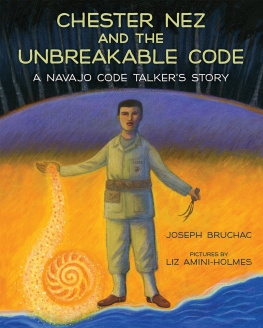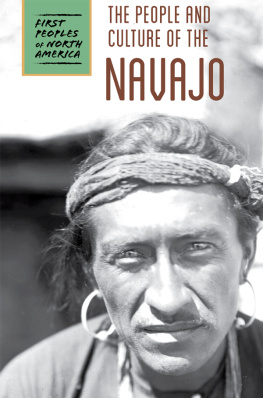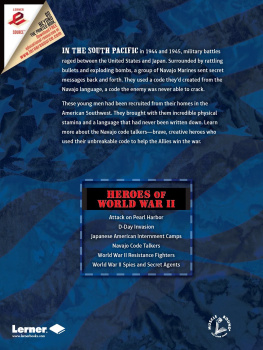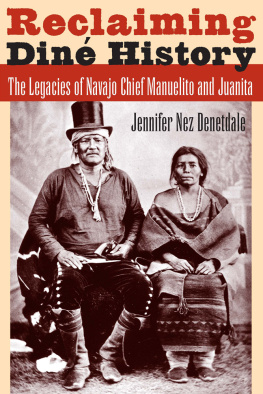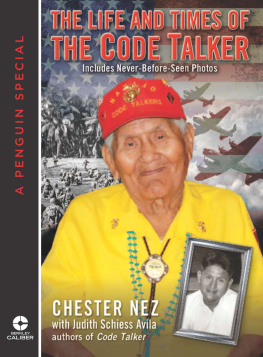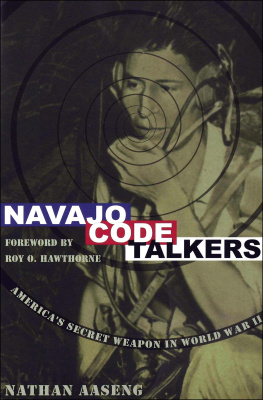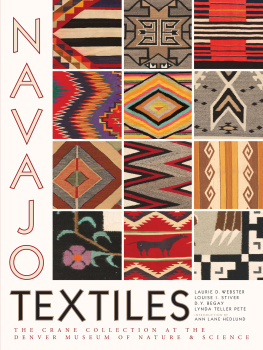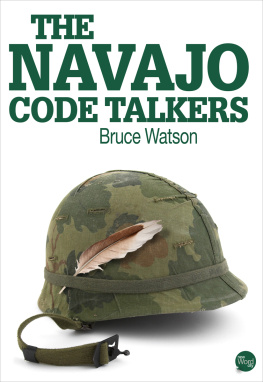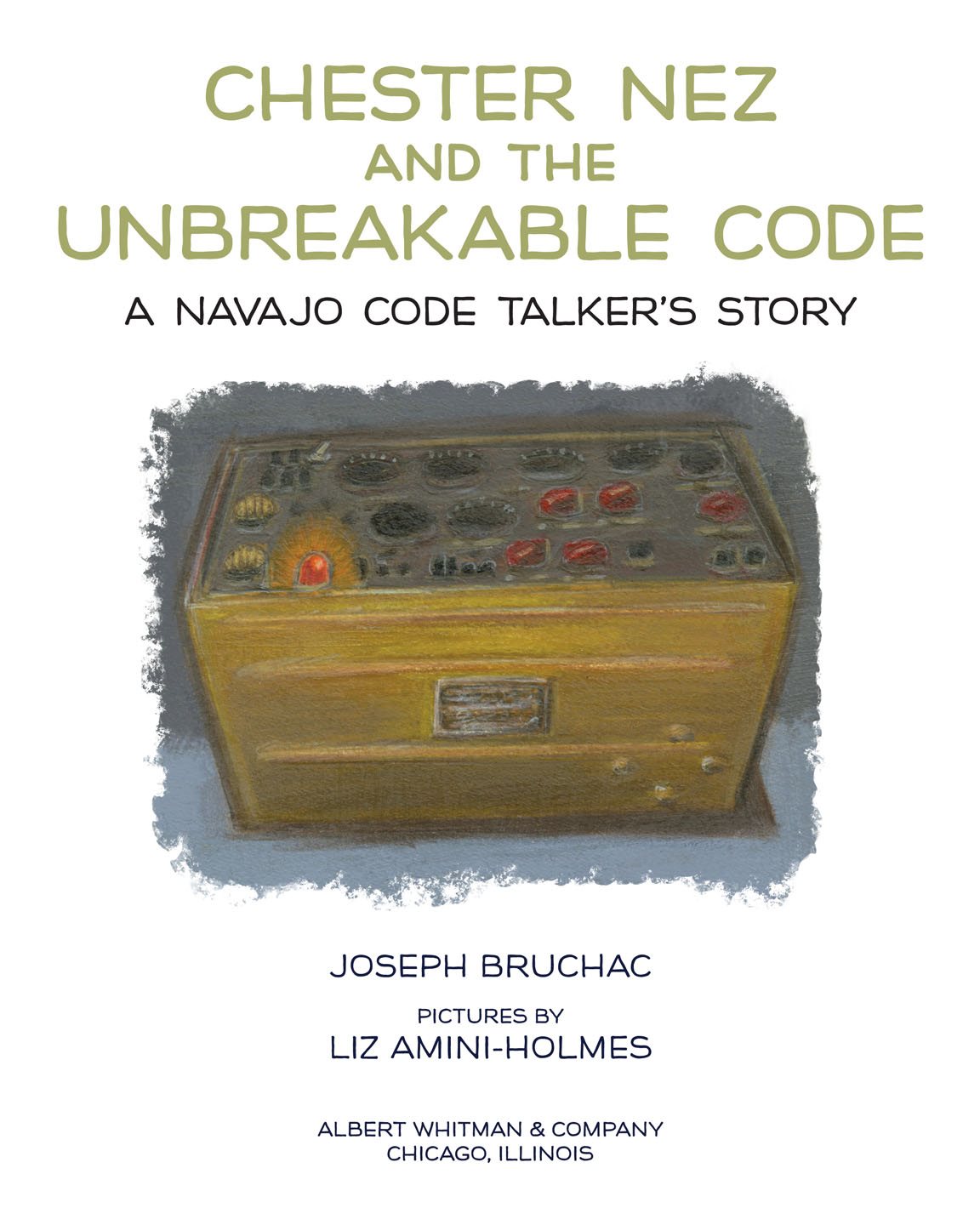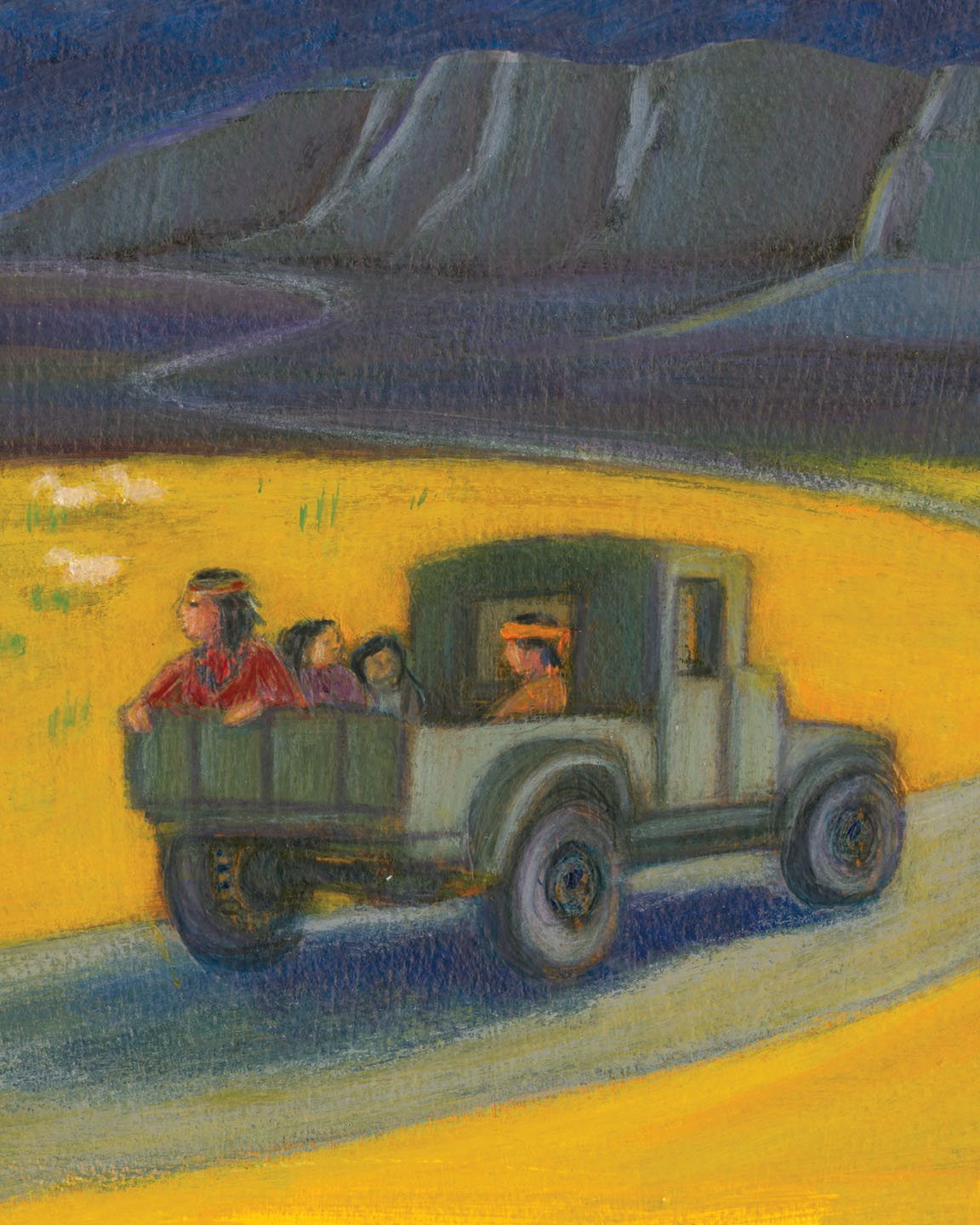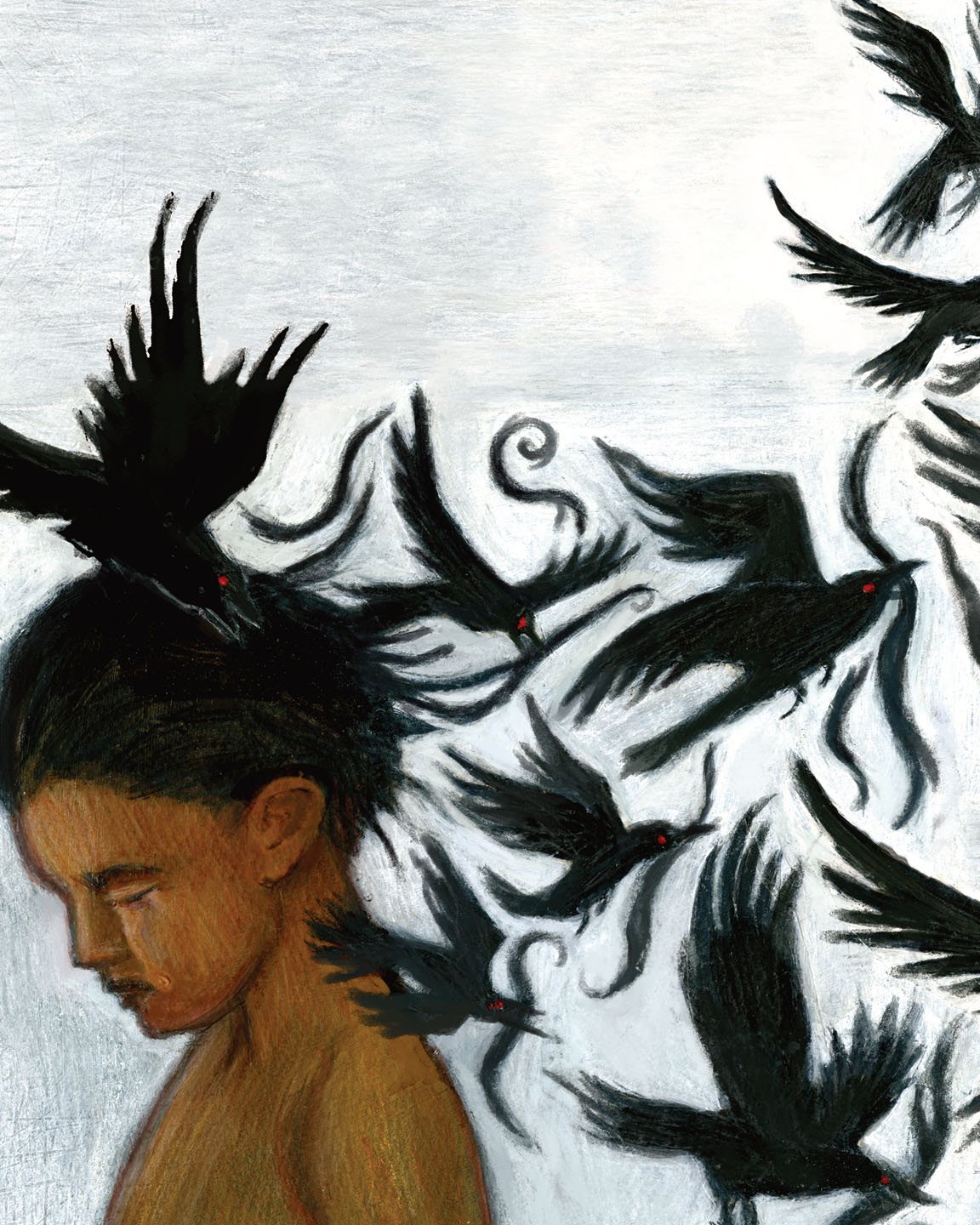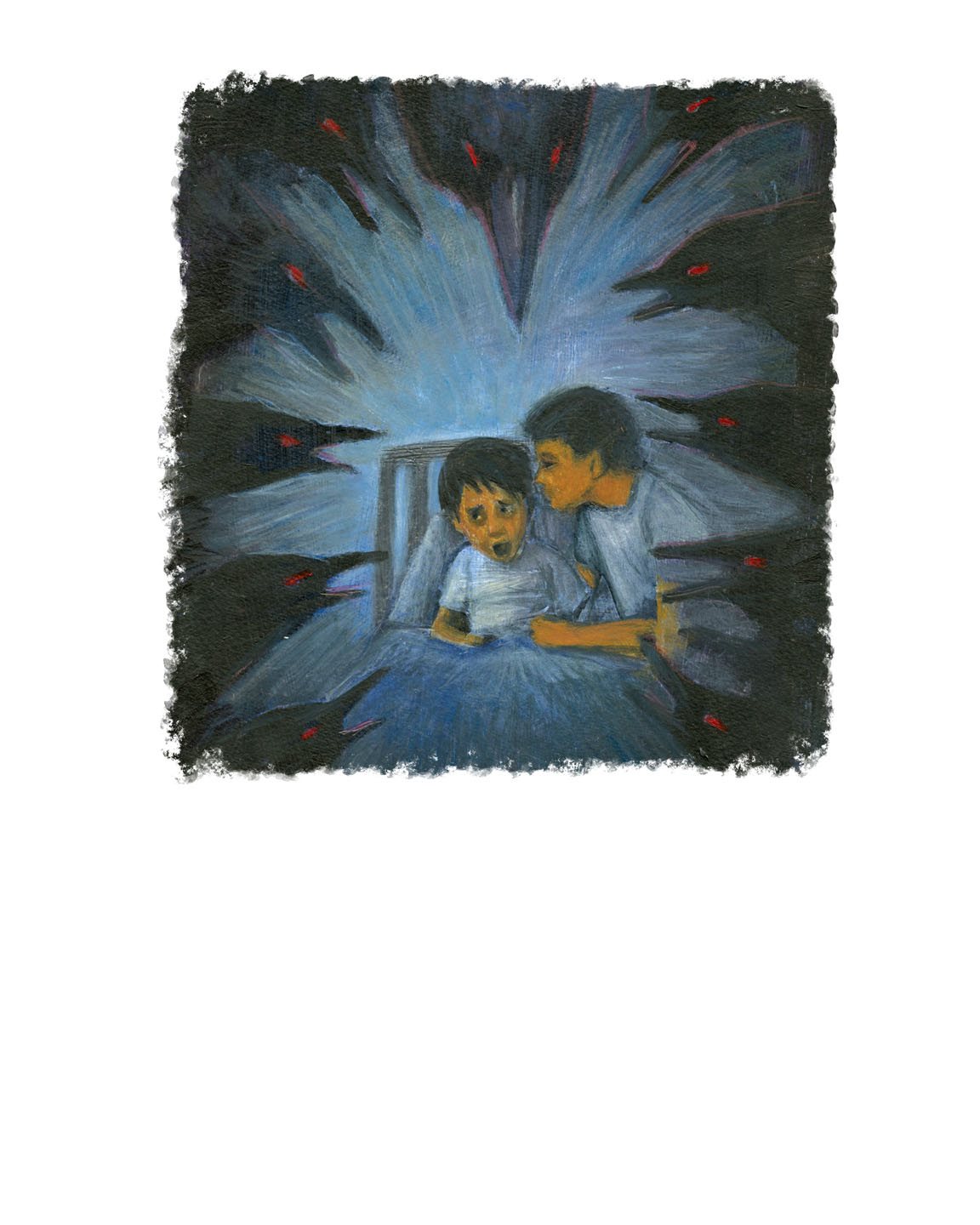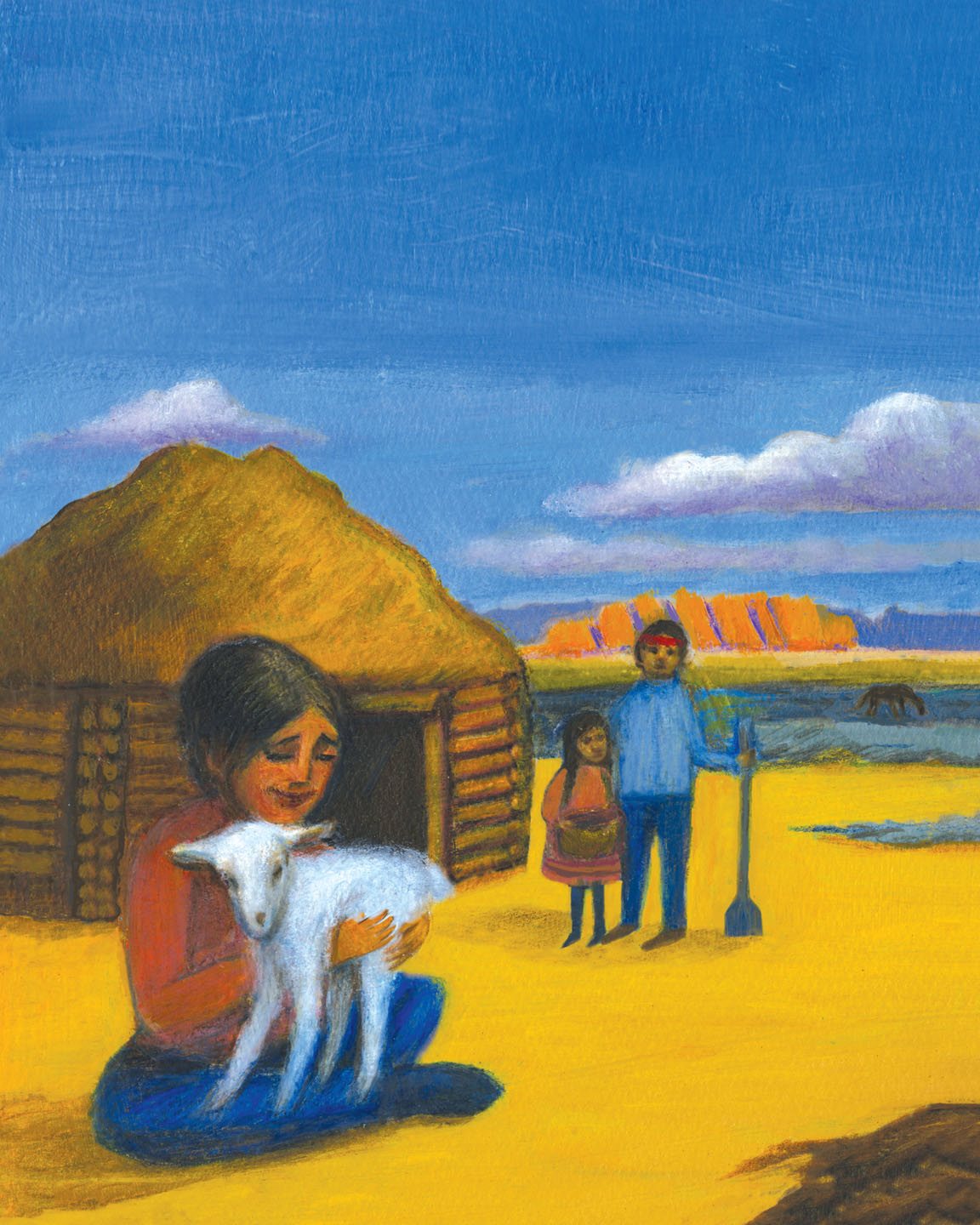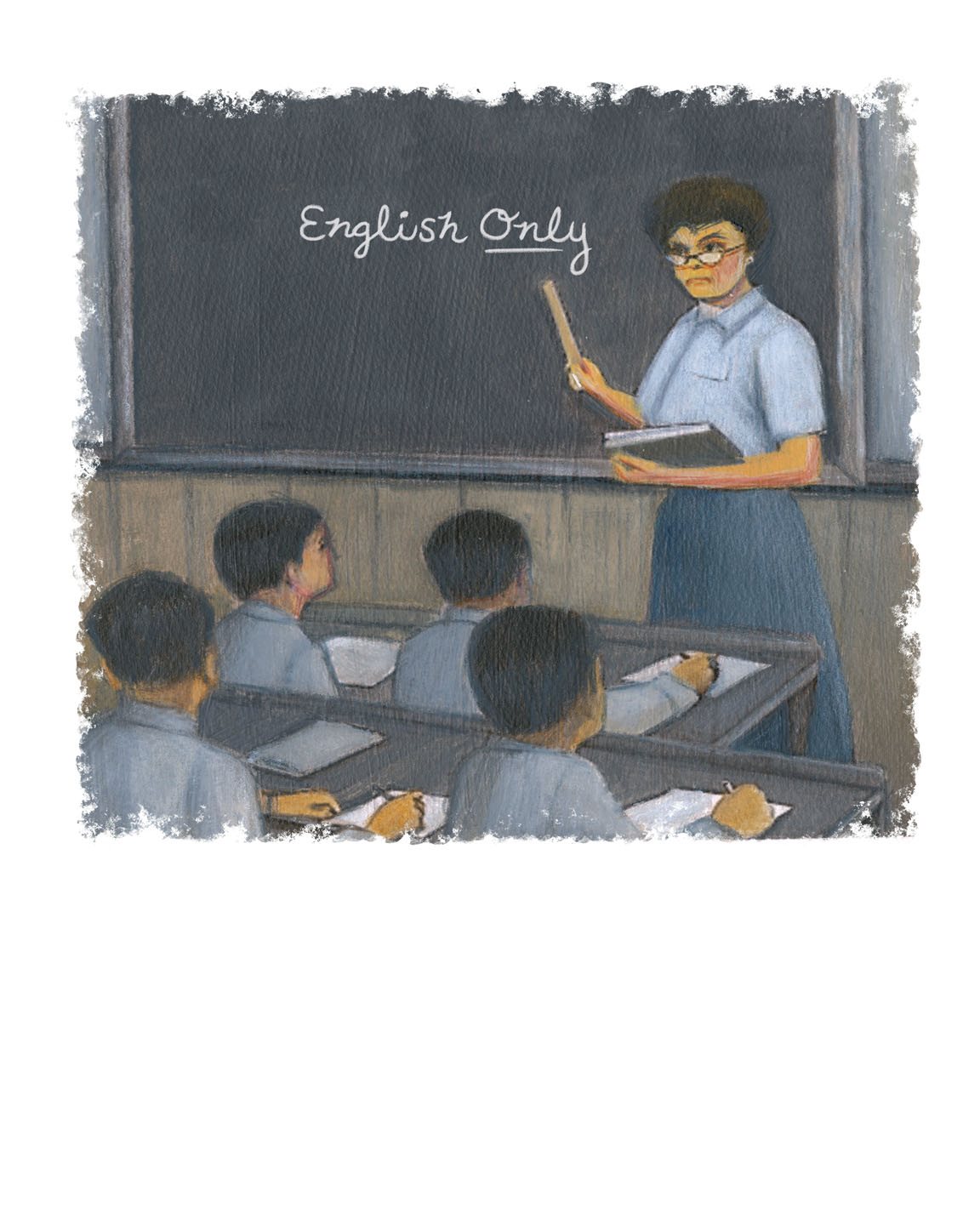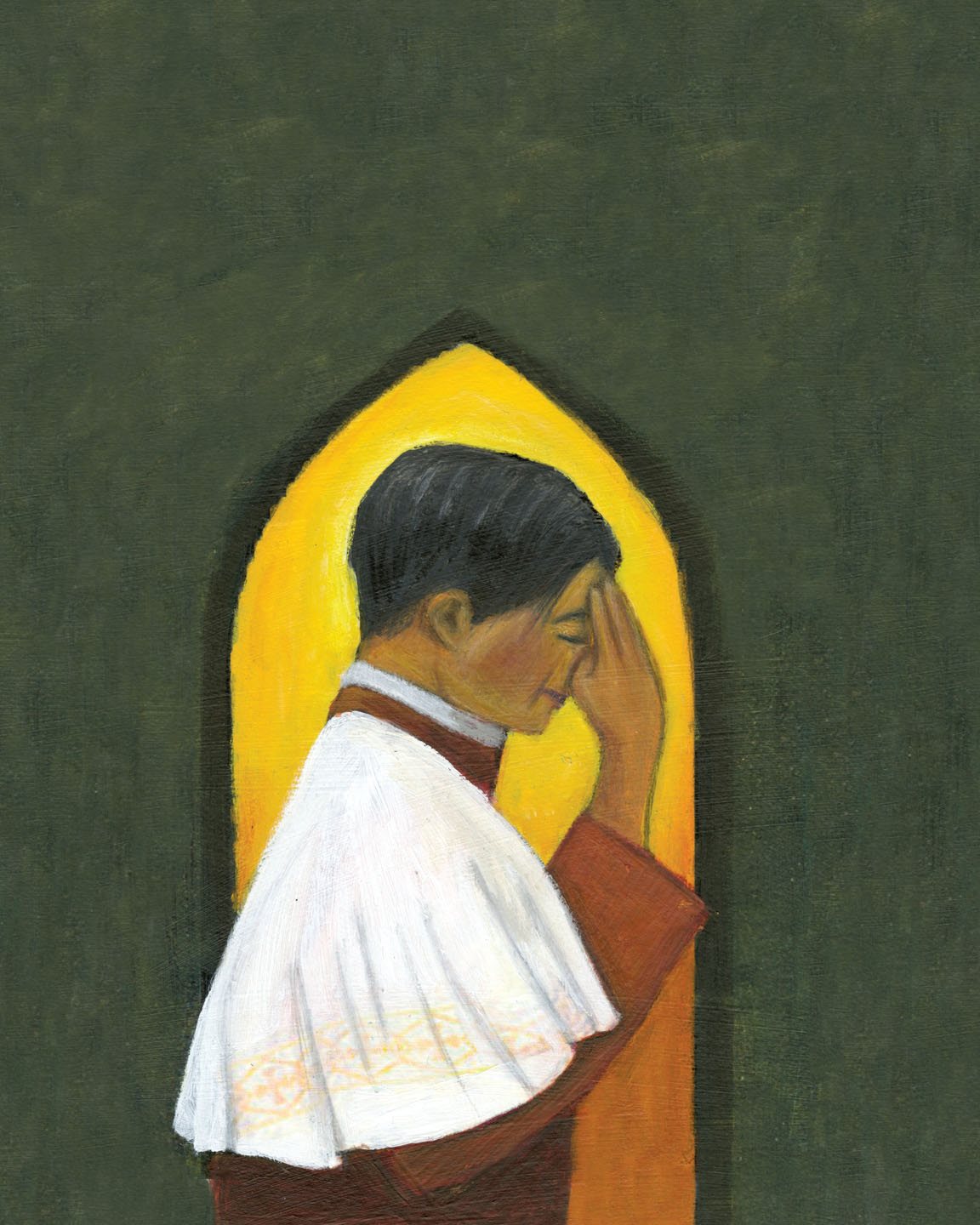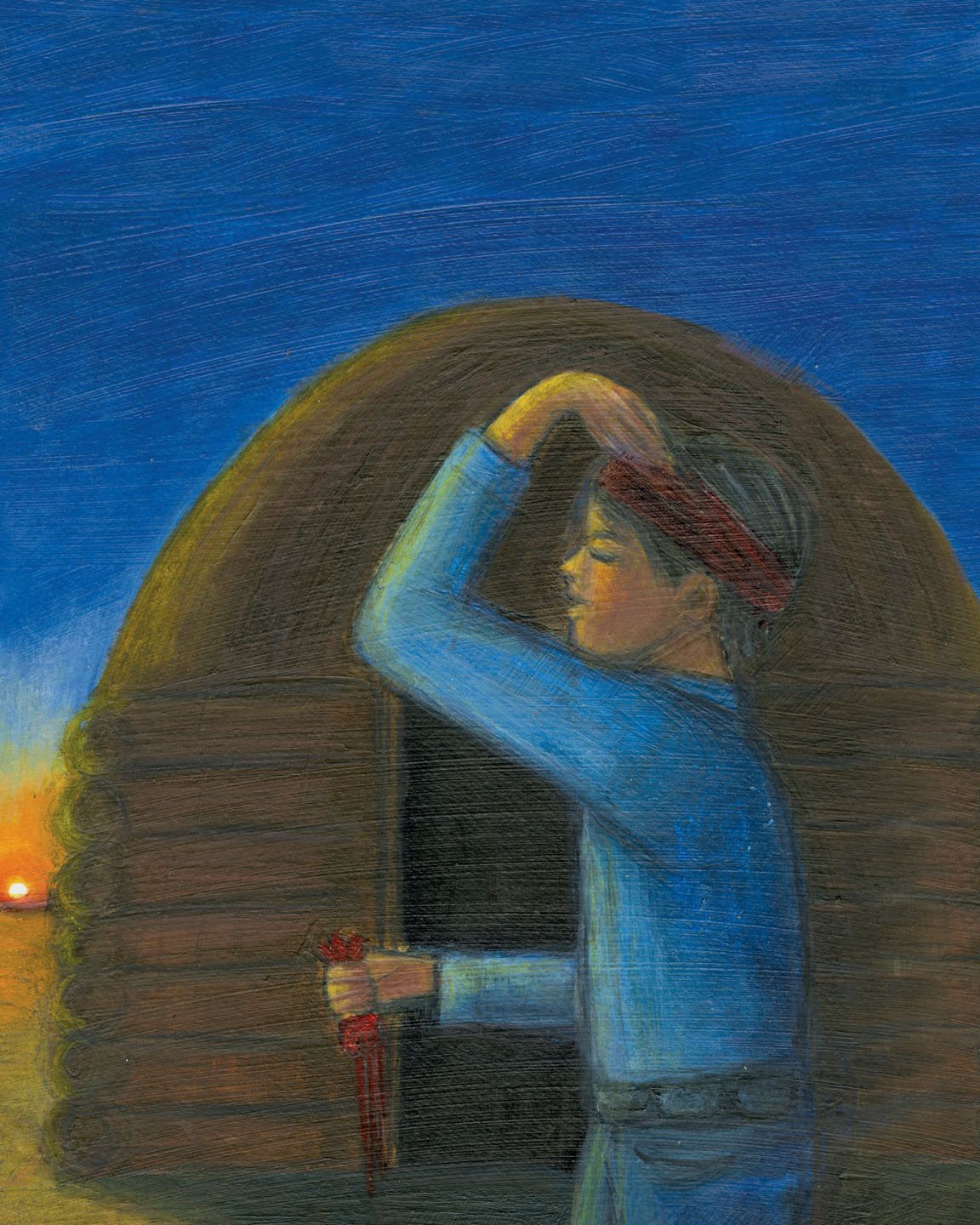Acknowledgments
Thanks to those Navajo friends and fellow writers such as Nia Francisco, Laura Tohe,
Rex Lee Jim, Luci Tapahonso, Shonto Begay, and Harry Walters who have, over the
years, helped me gain some understanding of the complex and inspiring culture and
history of the Dineh people. Thanks to the Navajo Code Talkers Association and the
code talkers Ive met, in particular Keith Little, Samuel Smith, and Samuel Holiday,
whose book about his own experiences in World War II, Under the Eagle, should be on
everyones must-read list. And, lastly, very special thanks to Mike Nez, Chesters son, for
his feedback, to Latham Nez, Chesters grandson, and to Judith Avila for so generously
advising us on this book and for having helped Chester Nez tell his story in Code
Talker: The First and Only Memoir by One of the Original Navajo Code Talkers of WWII.
To my wife and constant inspiration: Nicola Marae AllainJB
To my family that encircles me with love and supportLA-H
Library of Congress Cataloging-in-Publication data
Names: Bruchac, Joseph, author.
Title: Chester Nez and the unbreakable code: a Navajo code talkers story / Joseph Bruchac, pictures by Liz Amini-Holmes.
Other titles: Navajo code talkers story
Description: Chicago, Illinois : Albert Whitman & Company, [2018]
Identifiers: LCCN 2017035797
Subjects: LCSH: Nez, Chester. | Navajo code talkersBiography. | World War, 1939-1945Cryptography. |
World War, 19391945Personal narratives, American. | World War, 1939-1945Participation, Indian. |
United States. Marine CorpsBiography. | MarinesUnited StatesBiography. | Navajo IndiansBiography.
Classification: LCC D810.C88 B77 2017 | DDC 940.54/8673dc23
LC record available at https://lccn.loc.gov/2017035797
Text copyright 2018 by Joseph Bruchac
Pictures copyright 2018 by Liz Amini-Holmes
Published in 2018 by Albert Whitman & Company
ISBN 978-0-8075-0007-1
All rights reserved. No part of this book may be reproduced or transmitted in any
form or by any means, electronic or mechanical, including photocopying,
recording, or by any information storage and retrieval system,
without permission in writing from the publisher.
Printed in China
10987654321HH222120191817
Design by Ellen Kokontis
For more information about Albert Whitman & Company,
visit our website at www.albertwhitman.com.
OCTOBER 1929: MONTH OF SMALL WIND
When Betoli was eight years old, the time came for him to go to
boarding school. He had to leave his family, his home, and the goats
and sheep he loved and took care of.
He climbed into the back of the missionarys truck.
You need an English name, the missionary said. Betolis name
was Navajo, like he was.
You will be Chester, the man said.
At Fort Defiance School, the matrons shaved off
Chesters long hair and gave him a blue uniform to wear.
They made him use English, a language
hed never spoken, and when Chester spoke
Navajo, the matrons washed out his mouth
with yellow soap.
Navajo is bad! Speak only English!
Many years earlier, in the 1860s, the US Army had held Navajos
captive at Fort Defiance. From there, the army forced the Navajos to
go on the Long Walk, a journey of 300 miles into what is now New
Mexico. Many people suffered and died.
Fort Defiance was now a boarding school for Navajo children. But
some of the youngest students had bad dreams because of the forts
history. Chester did his best to calm their fears at night. He reminded
them they were not alone. They still had families back home.
JUNE 1932: MONTH OF BIG PLANTING
Over the summer, Chester returned home, where he could again
speak the sacred language the Holy People had given the Navajos
long ago. When he cared for the sheep and goats and prayed using
corn pollen, he felt like a real Navajo, living the Right Way.
His heart was strong again. Being home took away the loneliness
Chester felt at school.
SEPTEMBER 1932: MONTH OF HALF
Chester returned to school, where he was again told his Navajo
language was worthless.
You must use only English to survive in the white mans world!
the matrons said.
Chester knew he might need to live in the white mans world one
day. In that world speaking English was essential, so he worked hard
and did well. Chester enjoyed learning and wanted to prove his worth.
He also learned to pray the Catholic way and served as an altar boy.
The Catholic way was good, but so was the Navajo way.
Though he spoke English in school, Chester kept his love for his
Navajo people and their language. He decided to never break the ties
that bound him to them.
DECEMBER 1941: MONTH OF CRUSTED SNOW
Chester was in tenth grade when the school principal called the
students together.
The Japanese Empire attacked us at Pearl Harbor, he said.
We are at war.
The United States had fought the Navajos years ago, but now the
United States was their country too. Chester thought about how his
ancestors stood up against enemies. He should act with the same
courage. Protecting his homeland was an honor.
I am a warrior, Chester said to himself. I will fight for this land.
APRIL 1942: MONTH OF BIG PLANT
Recruiters from the US Marines Corps came to the Reservation. We
need Navajo men who speak English and Navajo, they said.

